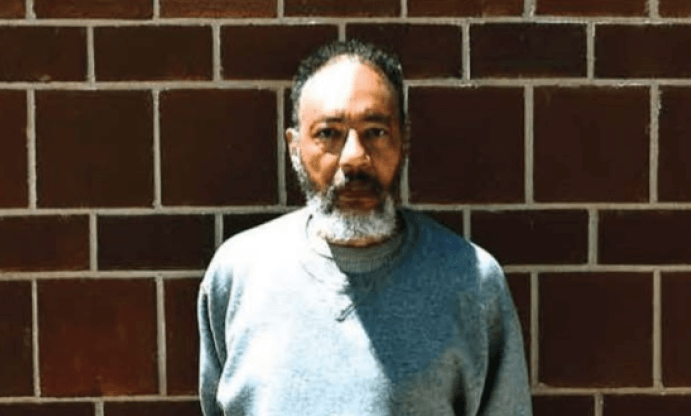Larry Hoover Net Worth: The Former Gang Leader’s Financial Status

Larry Hoover’s financial status presents a fascinating case study of how a notorious criminal past can shape an individual’s economic reality. Once a prominent figure with significant earnings derived from gang-related activities, Hoover’s net worth has been drastically affected by legal challenges and asset seizures. Currently, his financial activities appear limited, raising questions about the long-term implications of his legacy. What does this mean for his influence and potential avenues for recovery, especially as discussions around criminal justice reform continue to evolve?
See also: What Is DMX Net Worth? A Look at the Late Rapper’s Legacy
Background of Larry Hoover
Larry Hoover, a prominent figure in the history of organized crime in Chicago, emerged as the leader of the Gangster Disciples in the late 1960s, shaping the gang’s operations and influence in the city.
His Chicago upbringing exposed him to the pervasive gang culture, which significantly informed his leadership style and strategic decisions, ultimately establishing the Gangster Disciples as a formidable entity in the urban landscape.
Criminal Activities and Earnings
Larry Hoover’s criminal activities began in his youth, leading to his involvement in significant gang operations, which became a primary source of income.
This illicit revenue stream not only contributed to his personal wealth but also posed considerable legal challenges, complicating his financial situation.
Understanding these dynamics is essential to grasping the complexities of Hoover’s net worth and the impact of his criminal enterprises.
Early Criminal Ventures
During his early years, Hoover frequently engaged in various criminal activities that laid the foundation for his later influence in organized crime.
His involvement in gang initiation processes and turf wars not only established his reputation but also generated income streams that would contribute to his ascent.
These formative experiences were pivotal in shaping his understanding of gang dynamics and territorial control.
Gang Income Sources
Gang income sources are primarily derived from a range of illicit activities, including drug trafficking, extortion, and illegal gambling, which collectively create substantial revenue streams for organized crime operations.
These enterprises generate significant gang revenue, enabling leaders to maintain power and influence.
The profitability of these illicit enterprises fosters a cycle of criminal activity, complicating efforts to dismantle such organizations effectively.
Legal Financial Challenges
Legal financial challenges often arise from the complex interplay between criminal activities and their associated earnings, significantly impacting individuals involved in organized crime. Legal fees and financial restitution can accumulate, creating a burdensome financial landscape. The following table illustrates the key components of these challenges:
| Aspect | Description | Impact |
|---|---|---|
| Legal Fees | Costs incurred during litigation | Depletes financial resources |
| Financial Restitution | Compensation for victims | Further financial strain |
| Criminal Earnings | Income from illegal activities | Unstable revenue source |
| Debt Accumulation | Ongoing financial obligations | Long-term financial instability |
Business Ventures Overview
Larry Hoover’s business ventures reflect a complex interplay between entrepreneurship and the socio-economic challenges faced by marginalized communities.
His entrepreneurial ventures often aimed to provide economic opportunities for individuals in disenfranchised areas.
Despite the obstacles, Hoover sought to establish financial investments that could empower others, showcasing a potential for positive change within a landscape marked by adversity and limited resources.
Legal Challenges and Financial Impact
Larry Hoover’s extensive criminal record has significant implications for his financial standing, influencing his ability to engage in legitimate business activities.
Furthermore, asset seizures and associated liabilities stemming from legal judgments have compounded the challenges to his net worth.
These legal hurdles not only affect Hoover’s financial resources but also shape his overall economic legacy.
Criminal Record Consequences
A criminal record can significantly hinder an individual’s ability to secure employment, access financial services, and maintain stable housing, thereby exacerbating the financial challenges faced by those with a history of legal issues.
Limited job opportunities, higher interest rates on loans, difficulty in securing housing, and barriers to rehabilitation programs are all common repercussions of having a criminal record.
These consequences highlight the intersection of criminal justice and economic stability.
Asset Seizures and Liabilities
Asset seizures and liabilities stemming from criminal activity can severely undermine financial stability, complicating the path to economic recovery for individuals with a history of legal entanglements.
In Larry Hoover’s case, asset distribution challenges and obligations for financial restitution create significant hurdles.
These factors not only impact personal wealth but also impede the overall ability to rebuild a stable financial future.
Current Financial Status in 2023
In 2023, the financial status of Larry Hoover reflects a complex interplay of legal challenges, incarceration circumstances, and limited public engagement, which collectively impact his net worth and overall financial visibility.
Key factors include:
- Current investments largely hindered
- Limited financial management opportunities
- Ongoing legal expenses
- Minimal public financial activities
These elements contribute to a precarious financial situation for Hoover.
Public Perception and Influence
Public perception of Larry Hoover is significantly shaped by his long-standing criminal history, ongoing legal battles, and the narratives surrounding his role as a leader within the Gangster Disciples.
These factors collectively influence his societal impact and public image. Public opinion often oscillates between viewing him as a notorious figure and a potential reformer, reflecting the complexities of his influence on contemporary issues.
Legacy and Future Implications
Larry Hoover’s legacy is a complex tapestry interwoven with themes of crime, community leadership, and the ongoing discourse surrounding criminal justice reform, which continues to shape the perceptions and implications of his life and actions.
Key considerations include:
- The evolution of gang culture
- The social impact on urban communities
- Ongoing debates about rehabilitation
- The potential for transformative justice
These factors will influence his enduring legacy.
Conclusion
The complex financial landscape surrounding Larry Hoover illustrates the profound consequences of a life entrenched in criminality.
Once a figure of significant influence, the ongoing legal battles and asset forfeitures have left a stark void where wealth once flourished.
As 2023 unfolds, the stark reality of Hoover’s financial status raises questions about redemption and the potential for transformation.
Will this legacy of turmoil ultimately define Hoover, or is there a flicker of hope for a different narrative?




